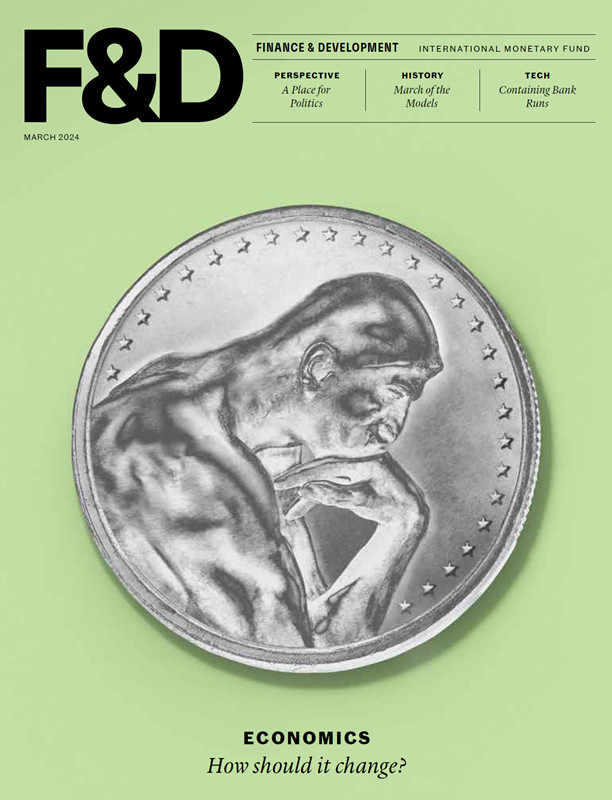Investigative journalists play a key role in bringing corruption to light
In 1971, whistle-blower Daniel Ellsberg discovered the so-called Pentagon Papers and spent countless nights photocopying over 7,000 pages before delivering them to the New York Times and the Washington Post. Four decades later, when an anonymous source gave German journalist Bastian Obermayer a flash drive with 11 million files taken from a Panamanian law firm, detailing shady dealings and tax avoidance schemes used by the rich and powerful, it was too much for even his entire newsroom to process. Obermayer asked for help from the International Consortium of Investigative Journalists (ICIJ), mobilizing 250 reporters in 90 countries.
Published in April 2016, the Panama Papers revealed a large, complex, and very well-hidden corner of the global economy. The scandal resulted in the resignations of prime ministers and senior officials from Iceland to Mongolia.
From the Pentagon to Panama, with other major discoveries in between, investigative journalism has made major contributions in bringing to light what some would rather keep in the dark. But it has been a bumpy ride: while there are more areas to investigate, there are fewer outlets to publish the results. The carnage of the traditional media around the world has been well documented. According to one study, 1,800 local newspapers have disappeared in the United States alone since 2004. The internet and other technologies offer new platforms, but they have muddied the waters too. Many discoveries are now the product of hacking—as opposed to an insider acting out of conscience—which raises ethical and legal questions.
Charles (known by many as “Chuck”) Lewis has seen the highs and lows of investigative journalism throughout his career. From Senate intern during the Watergate scandal to a stint with the legendary Carl Bernstein at the ABC television network, he eventually became a senior investigative producer for CBS’s 60 Minutes. He quit the show in 1989 and founded the Center for Public Integrity. Years later, he founded the ICIJ.
Lewis helped found a few of the over 200 nonprofit news organizations active in the United States. Now a journalism professor and executive editor of the Investigative Reporting Workshop at American University in Washington, DC, Lewis sat down with F&D’s Andreas Adriano to talk about investigating financial issues, the bleak outlook for news organizations, and the ethical implications of hackers as the new whistle-blowers.
F&D: Local newspapers are all but extinct now. How does their disappearance affect investigation at the local level?
CL: I started in the sports department of the Wilmington News-Journal newsroom in Delaware in the early 1970s. It was one of the best of the small and midsize papers. But everything went to hell. They went from 187 people to around 35 now. The number of reporters today is the same as in 1972, while the federal budget increased nearly twentyfold. Tens of thousands of journalists lost their jobs in the United States. Most laws here are passed at the state level, but there are one-third fewer journalists in the state capitals. In Washington, nobody is covering members of Congress for 27 states. There are also what I call “news deserts”—vast areas of the country lacking dedicated daily news coverage, whether by radio or local or state newspapers.
F&D: Is it possible to know what is not being covered?
CL: No. There are over 100 federal agencies in Washington. The elite media—Washington Post, New York Times, and Wall Street Journal—don’t cover all of them. You end up sometimes with obscure newsletters, thousands of them, covering different industries, and they may just represent private interests.
F&D: How does that affect financial and economics reporting specifically?
CL: My worry, to be blunt, is that the only people with access to substantive information are the highly educated elites. They will be subscribing and reading all the information from the leading media, and doing it partly to make money, of course. While the rest of the public, including the educated public, are not reading or consuming news to the same extent. There is this dichotomy between the haves and the have-nots with regard to reading material with actual substance.
F&D: Are nonprofit news organizations making up for the loss?
CL: There are now 205 nonprofit investigative journalism organizations in America, and 27 internationally. Philanthropic institutions and individuals have stepped up and donated over a billion dollars in recent years to create coverage in areas where the local newspapers can no longer do it. It doesn’t make up for the carnage and loss of jobs, but it could have been even worse. I estimate these nonprofits employ up to 3,000 journalists.
Around 2008, when the Pulitzer Prize started losing applicants, they allowed nonprofit organizations to apply. Two organizations that I founded—ICIJ and Center for Public Integrity—have won Pulitzers, and nonprofits like ProPublica have won about a dozen so far.
F&D: Does it trouble you that a lot of investigative journalism today is based on hacking, a crime, compared with whistle-blowers acting out of conscience (like Daniel Ellsberg and the Pentagon Papers)?
CL: First, on the Panama Papers, nobody really knows who the source is. It may have been hacking, or it may have been an insider—like an embittered employee or someone who knew an insider. There are new books and a movie coming out, so we may learn more about it.
On the broader point, there’s a grayness to it. Some time ago, during an investigative journalism conference in Europe, the organizers intentionally sat me and other famous journalists, like Seymour Hersh [investigative reporter for the New Yorker magazine], together with a group of hackers for a dinner. It was fascinating to hear from them. Some are hacking precisely because they believe there is something wrong with society or an agency protecting a company, so it’s the same as a government employee who starts leaking because they are offended by what they see.
I agree that some hackers can be venal and criminal. But again there is a grayness. If there are abuses of power and the only way the public knows about it is through leaked documents, isn’t that useful? The Pentagon Papers were immensely valuable to be released. But if we had just waited for the Pentagon, they’d still be holding them.
I’m not saying there aren’t abuses. Admittedly, I’m an investigative journalist and I think that the public has a right to know what is going on. It really comes down to individual cases and specifically analyzing what comes out. There are occasions when people actually do things out of conscience, and what they’re releasing might be useful for society at large.
F&D: If you could advise governments on improving transparency, what would you tell them?
CL: I think that every democratic, or minimally accountable, government should have great concerns about offshore jurisdictions. If US-chartered banks are doing “extralegal” things, or maybe even outright illegal things, in these 60 to 90 offshore jurisdictions, that should bother the US government, Congress, and the Internal Revenue Service. Instead, everyone kind of looks the other way.
This is a global problem. We need more discussion, reporting, understanding, and accountability by all these entities.









